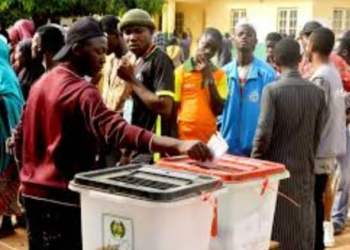A research and political risk analysis firm, SBM Intelligence, has said that late former President, Muhammadu Buhari, left behind a legacy of economic decline as president from 2015 to 2023.
The organisation said that Buhari’s eight-year tenure plunged Nigeria into deep economic and social failure despite isolated gains.
“During the Buhari administration (2015-2023), Nigeria faced significant decline.,” the organisation said in a post on its X (formerly Twitter) account.
“GDP per capita plummeted by 38% to $1,597, accompanied by two recessions.”
According to SBM Intelligence, Buhari’s administration, which began amid high public expectations and a promise to fight corruption, boost the economy, and improve security, ultimately left Nigeria “poorer, less secure, and more indebted.”
“Despite foreign reserve growth and a 160% growth in rice production, poverty deepened. Overall, Buhari’s legacy points to Nigeria becoming poorer, less secure, and more indebted.“
The data presented by the organisation showed sharp economic downturns, stressing that Inflation more than doubled, reaching 24.66% by the time Buhari left office.
“Inflation more than doubled to 24.66%, while oil production fell 30%,” it stated.
Also, oil production, Nigeria’s economic lifeblood, dropped by 30%, even as the country battled with oil theft, vandalism, and declining global demand.
The organisation noted that social indicators were equally grim with unemployment tripling to 33.2%, while healthcare deteriorated.
“Socially, unemployment tripled to 33.2%, healthcare deteriorated from 1 doctor per 4000 patients to 1 doctor per 9000, and 10.5 million children remained out of school as education’s share of the budget fell from 10.7% to 4.95%,” SBM Intelligence stated.
The organization further noted that insecurity reached alarming levels under Buhari’s leadership.
It stated that an average of 15,000 violent deaths occurred annually, driven by insurgency in the northeast, banditry in the northwest, and farmer-herder conflicts in the middle belt.
On the fiscal side, it stated that Nigeria’s national debt quadrupled, but unfortunately, the debt surge did not correspond with meaningful infrastructure development.
“Over 15,000 violent deaths occurred each year on average, and the national debt quadrupled without infrastructure growth,” it stated.
The SBM Intelligence’s statement added to ongoing controversies about Buhari’s long-term impact on Nigeria.
While his supporters have often pointed to his agricultural reforms, infrastructure projects, and efforts to strengthen anti-corruption institutions, critics have accused his administration of economic mismanagement, human rights violations, and an over-reliance on borrowing.
Buhari, a retired major general and former military ruler from 1983 to 1985, was elected in 2015 as a “change candidate” under the All Progressives Congress (APC).
Buhari, who was re-elected in 2019 and left office in May 2023 when he handed over power to the current President, Bola Tinubu, died on Sunday July 13, 2025 in London.
While tributes have poured in since his passing, SBM’s sobering assessment serves as a reminder that his legacy remains contested.









